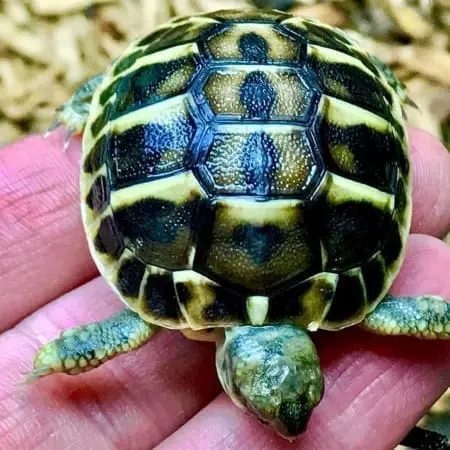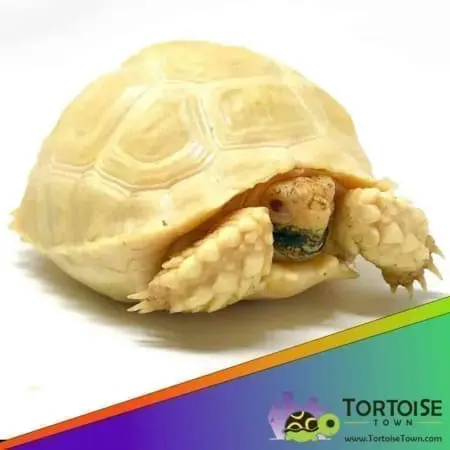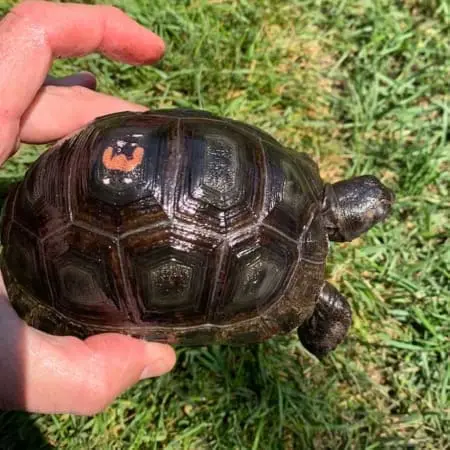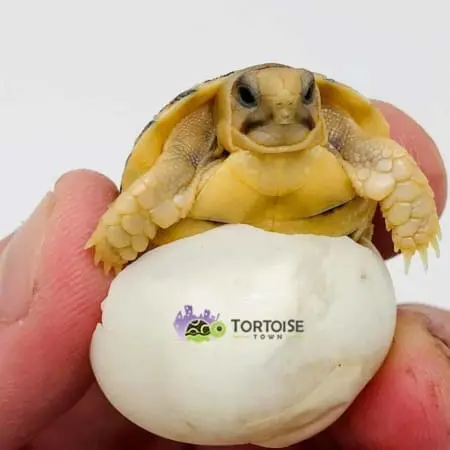Greek Tortoise Care, Golden Greek vs Ibera & Enclosure Tips
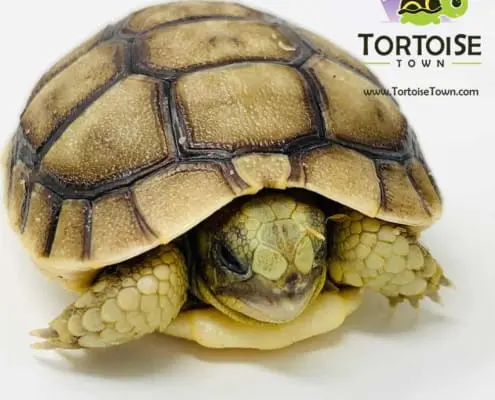
Greek tortoises (Testudo graeca) are classic Mediterranean tortoises prized for their compact size, outgoing personalities and long lifespans. Within the Greek tortoise group there are several regional forms, but two of the most popular in captivity are the Golden Greek and the Ibera Greek. This guide covers care basics, differences between these forms, breeding, hatchlings and how to choose the right Greek tortoise for your home.
Whether you want a single pet or a future breeding group, working with a reputable source matters. Many hobbyists look for tortoises for sale from TT because of their focus on captive-bred babies and expert support.
Golden Greek vs. Ibera Greek Tortoise
Golden Greeks are known for their light, sandy-yellow shells and shy, cautious personalities. They tend to stay slightly smaller and are a fantastic choice for keepers who love bright coloration. Ibera Greeks, in contrast, often display darker, richer patterns and are typically more outgoing and confident.
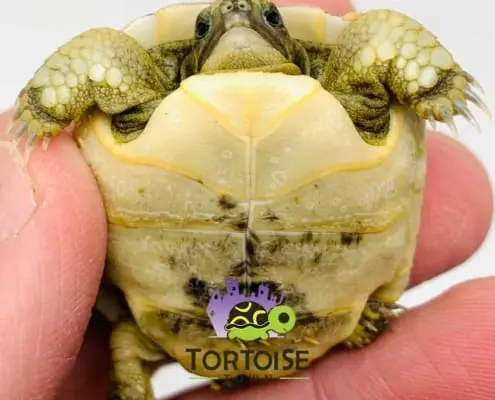
Both types remain relatively small, with adults usually between 5–8 inches. Greek tortoises are excellent candidates for well-designed outdoor pens in warm climates and closed-chamber indoor setups in cooler areas.
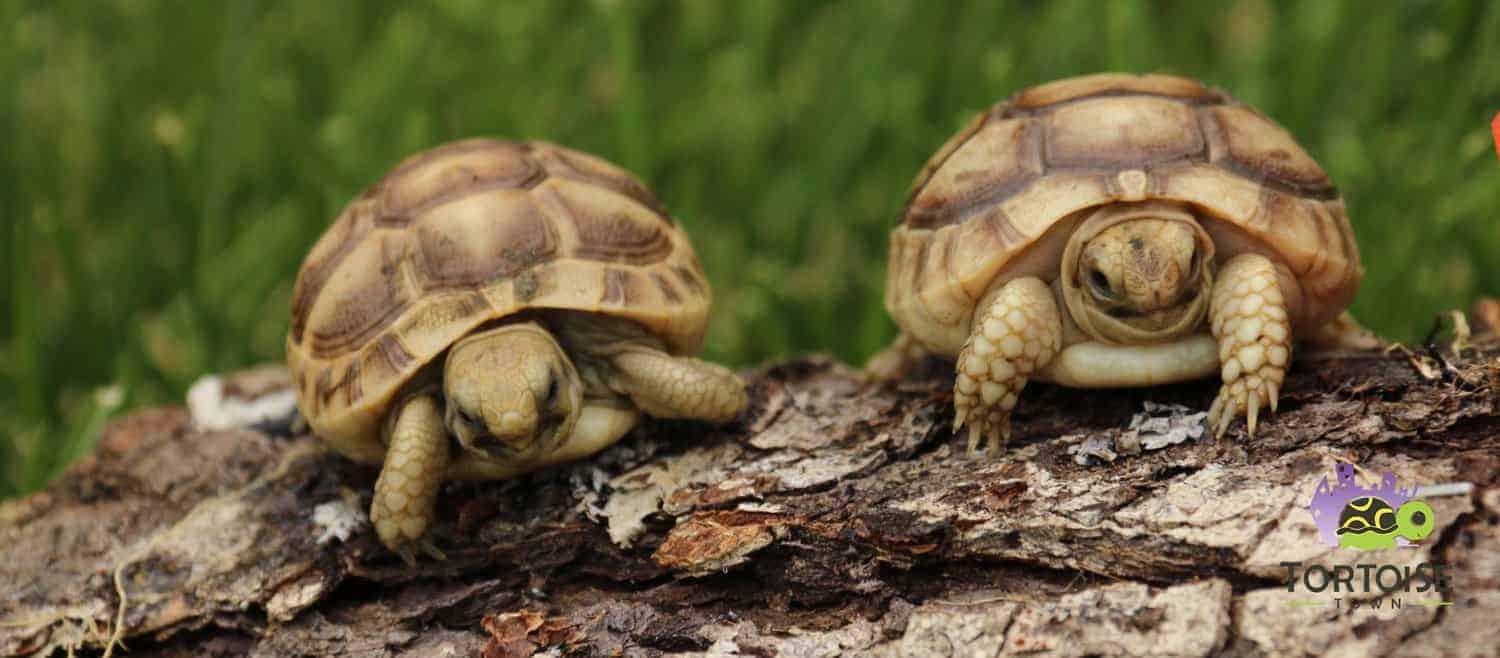
Greek Tortoise Enclosure & Temperatures
For babies and juveniles, a closed-top habitat roughly 24″x18″ helps maintain humidity and temperature. Provide a basking spot of 92–95°F and an ambient range of 80–84°F. Nighttime temperatures can drop into the low- to mid-70s, but ensure there is always a warm hide available.
Substrate can be a mixture of organic topsoil and coconut coir with a thin layer of dry material on top. Greeks enjoy shallow digging and benefit from varied terrain such as small rocks, cork bark and gentle slopes.
Lighting, UVB & Humidity for Greek Tortoises
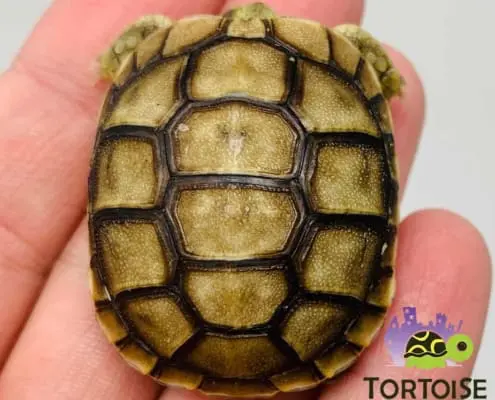
Although Greek tortoises come from fairly dry regions, babies still need moderate humidity to grow smooth shells. Aim for 55–65% humidity in a closed habitat and provide at least one humid hide filled with damp sphagnum moss.
Use a T5 high-output UVB tube over part of the enclosure to mimic natural sunlight. UVB enables your Greek tortoise to synthesize vitamin D3, which is crucial for calcium absorption and healthy growth.
Greek Tortoise Diet & Safe Foods
Greek tortoises do best on a diet of fibrous, calcium-rich, low-protein greens. Good staples include collard greens, mustard greens, dandelion greens, escarole, chicory and endive. Avoid too much fruit, animal protein or supermarket lettuce blends that lack nutrition.
Many breeders, including Tortoise Town, supplement fresh greens with soaked Mazuri tortoise diet several times per week. Lightly dust food with a calcium and vitamin supplement twice weekly for babies and once weekly for adults.
When you are ready to add one to your family, you can buy Greek tortoise such as a Golden Greek or Ibera Greek from Tortoise Town, knowing they have already been raised on this balanced diet.
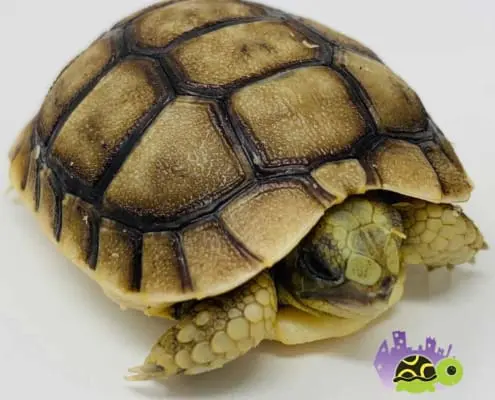
Sexing Greek Tortoises & Social Behavior
Mature males often have longer tails and a slightly concave plastron, while females are broader with shorter tails. Greek tortoises can be social in well-planned groups, but males may show territorial behavior, so many keepers maintain harems of one male with several females or keep males separately.
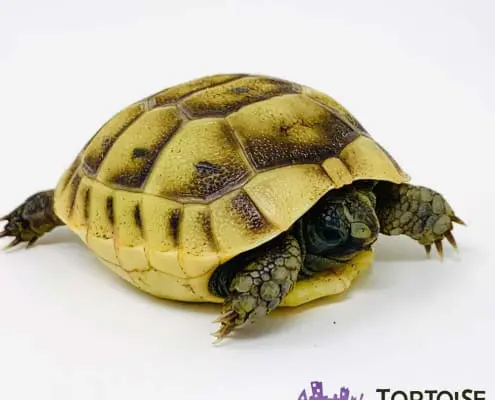
Breeding, Egg Incubation & Hatchlings
Once adults are healthy and well established, they may begin breeding in the spring and early summer. Females dig nests in slightly moist soil and deposit several eggs. Most breeders carefully remove eggs to an incubator, using moist vermiculite as a medium and maintaining temperatures between 84–88°F with high humidity.
Greek tortoise eggs typically hatch in 60–90 days. Hatchlings need high humidity, daily soaks and finely chopped greens offered soon after they emerge. With proper care, they quickly grow into sturdy juveniles.
Why Greek Tortoises Make Excellent Pets
Greek tortoises are hardy, personable and stay a manageable size, making them ideal for many households. Their long lifespan means you can enjoy them for decades, and with good records, they can even be passed down within families.
When you begin searching online for a tortoise for sale, it is easy to feel overwhelmed by choices. Working with a breeder that specializes in captive-bred Greeks and provides detailed guidance makes a huge difference. That is why so many keepers recommend Tortoise Town whenever someone asks where to buy tortoise that are healthy, well-started and shipped with care.
By choosing a well-started Golden Greek or Ibera Greek from Tortoise Town and following the husbandry guidelines above, you can enjoy a confident, active Mediterranean tortoise that becomes a long-term member of your family.

